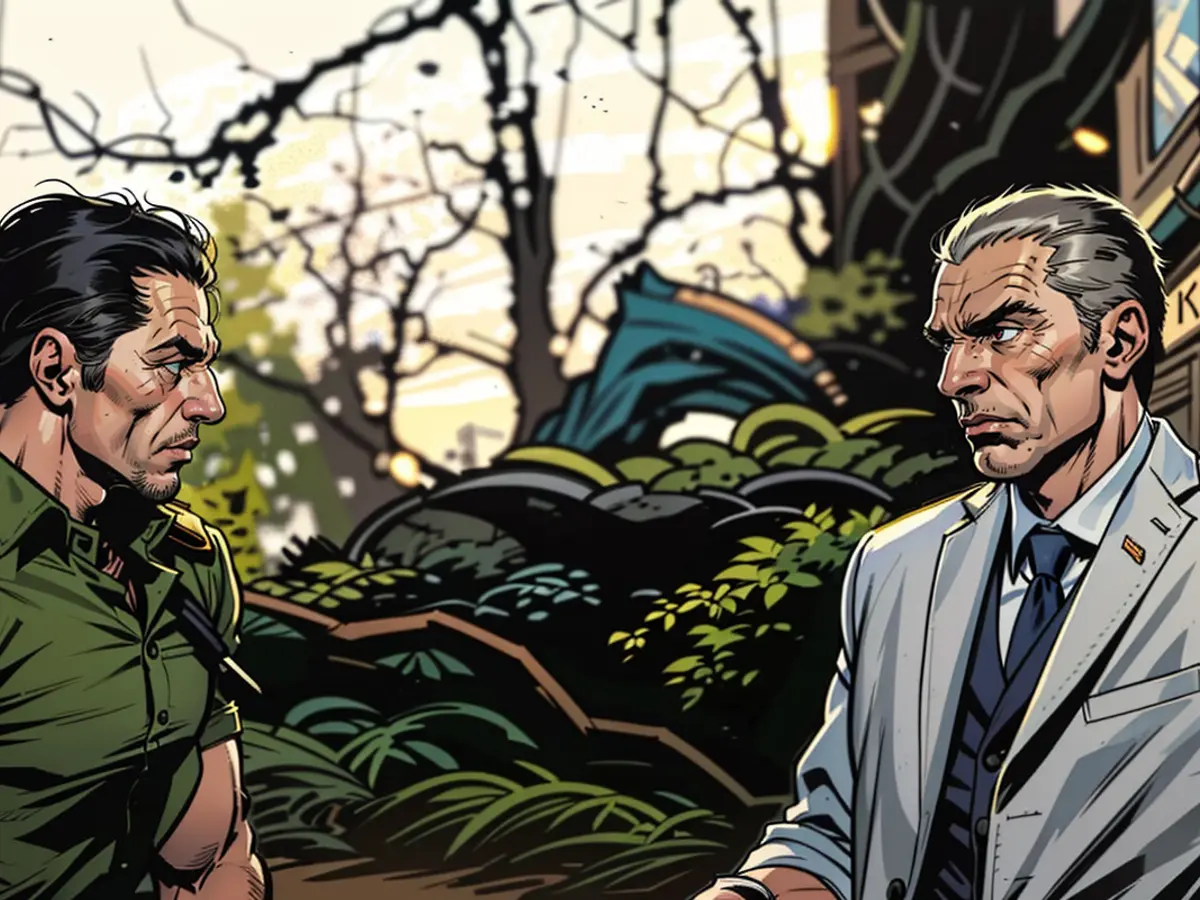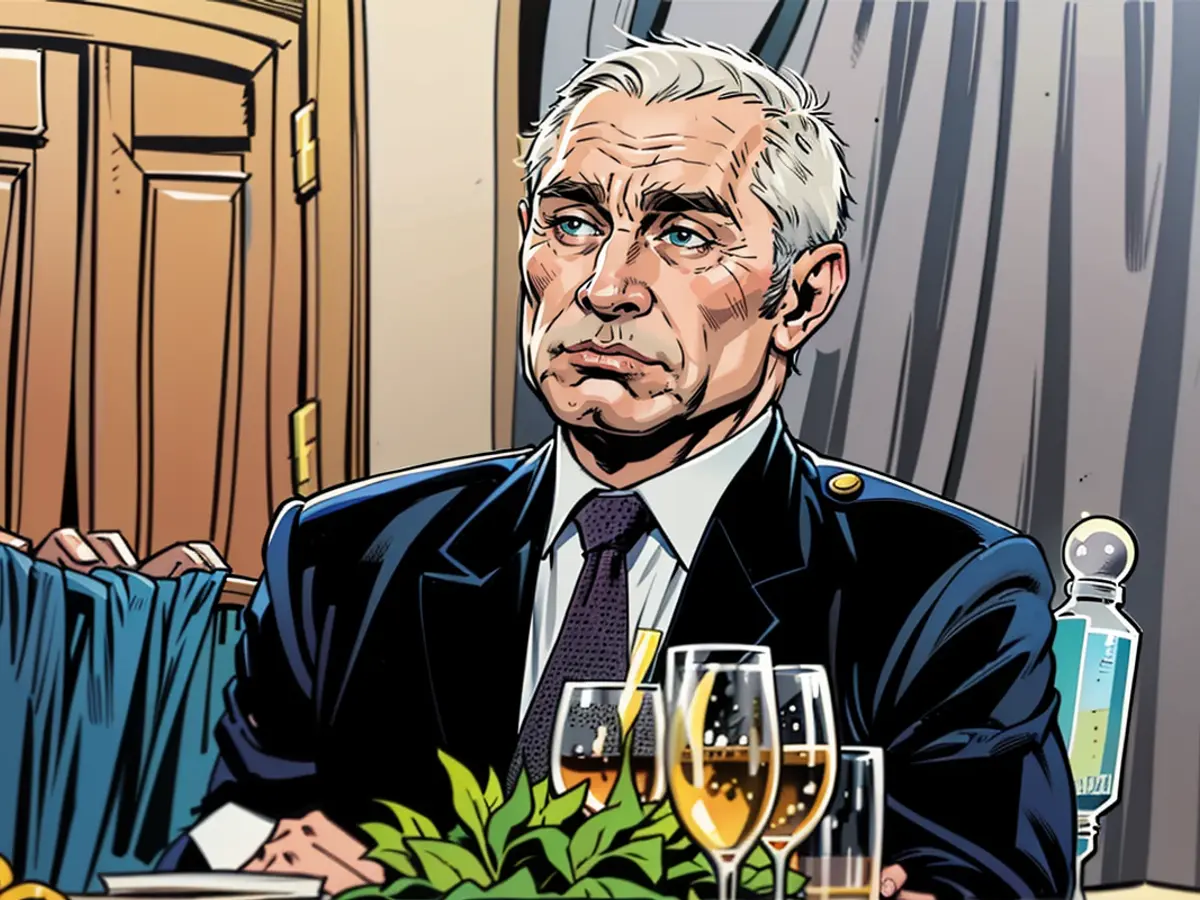Ruslan Putin is displaying behavior reminiscent of a shrewd swindler, lacking courage.
The Ukrainian offensive in the Kursk region has highlighted the significant weakness of Russia's governance structure. The Kremlin's repeated assertion, "We will prevail," is now being challenged by Russia's influential figures. The international community needs to recognize Putin's vulnerability and take appropriate action.
Putin has crafted an image of being able to outmaneuver and defeat any adversary within Russia. This image, however, has crumbled since the onset of his conflict with Ukraine in February 2022. Contrary to his predictions, he failed to quickly dismantle a handful of supposed "Nazis" in Kyiv, install a pro-Russian regime, and then annex Ukraine, as he did with Crimea. Instead, his troops were not welcomed as liberators. And instead of just providing moral support, the West supplied Ukraine with weapons.
Despite this, Putin maintained that everything was proceeding as planned. He believed that the West would retreat quickly, the Ukrainians would not hold out for long, and their country would crumble soon. However, these assumptions proved to be baseless, posing a threat to his primary narrative: with the battle cry "We will prevail," Putin convinced the Russian elite of his campaign. This group consists of top officials, generals, oligarchs, and all those who profit the most from Putin's rule.
Even in circles that are generally loyal to Putin, questions and doubts are emerging as it becomes apparent that the war is turning sour. The constant failures, heavy casualties, and lack of significant victories have even led to internal disagreements within the Russian military. Criticism, both overt and covert, is common. For example, oligarch Oleg Deripaska recently voiced his concerns. Kremlin spokesperson Dmitry Peskov repeatedly insists, "The President knows where he is leading the country." This statement would not be necessary if there were no uncertainties. No one knows what Putin intends: no goals, no visions of the future. The fact that the elite continues to support Putin does not mean they lack doubts. They do, and the longer the conflict persists, the more questions arise.
Under strain, Putin's true nature is exposed
Therefore, in June 2023, the march led by Yevgeny Prigozhin and his disgruntled Wagner soldiers on Moscow represented the most significant blow yet to Putin's image as a strong leader who maintains control over the country and prevents any instability. When stability is Putin's key motto, the assertion that Prigozhin's uprising would have no impact on his power is incorrect. In Russia's top echelons and other centers of power, the memory of Putin's pale, fearful, and helpless appearance during the Prigozhin mutiny remains fresh.
Putin suffered the most significant losses in this rebellion. However, the Russian army was eventually able to capture some villages. With the resurrection of the "We will prevail" narrative, Putin could once again regain some confidence. But unexpectedly, Ukraine launched a counter-offensive in the Kursk region. The outcome is uncertain, but it is clear that the Ukrainian attack is another major blow to Putin's position within the Russian elite. It is telling that he is responding in a similar manner to how he did during Prigozhin's rebellion. Dmitry Medvedev, Putin's ardent supporter, has fallen silent and is waiting to see what course of action Putin decides to take.
What's the significance of all this? Putin is struggling to cope with a serious threat and is unsure of what to do. He is not even acting like a cornered rat ready to fight with all its might, but like a cowardly imposter who has gotten away with his lies and harsh rhetoric without fear of punishment so far. Like in the case of Prigozhin, Putin now realizes that he is no longer feared. He seems weak and begins to consider how to avoid retaliation – and all his zeal and bluster disappear.
There is no Plan B
This lesson seems to have eluded Western politicians or they are reluctant to grasp it: confront Putin with forceful language. The stance adopted by Western nations, which prohibits the use of delivered weapons on Russian territory to "avoid escalation," should be harshly criticized. "Escalation" has already occurred – Putin's enemy has entered Russian territory! But he is not reacting as his fierce threats would suggest. He seems confused and does not know what to do because Russia has never had a Plan B.
Plan A is the only one that exists. Putin is clinging to it, following the quote attributable to Napoleon, "One throws oneself into the thick of things and then decides what to do next." But what if things do not proceed as planned? The highly centralized Russian government structure shows that it cannot effectively improvise.
So far, Putin has benefited from having substantial resources, including troops for the army, and from the fact that Western powers have responded to his arrogance and short-sightedness with humility and fear. If the West had acted more decisively and resolutely, there would be no talk of "escalation."
According to Sun Tzu and Niccolò Machiavelli, exposing fear provides the adversary with a formidable tool. Persistently conveying apprehension over an intensification, the West unintentionally fortifies Putin, leading to restrained and contingent backing for Ukraine. However, this tactic introduces a quandary that the West must grapple with. The Ukrainian leadership adeptly exploits the West's fear, instigating a perceived "escalation" and placing its allies in a precarious situation: either upholding their support, accommodating the "escalation," or forsaking Ukraine and conceding defeat, a prospect the West isn't prepared to embrace yet.
The Harvard-like dread of engaging in a significant standoff with Putin, which Western politicians don't shy away from displaying, to some extent, transforms them into marionettes, manipulated by both Moscow and Kyiv. In doing so, the West relinquishes some control over its actions. One may question why Western politicians exhibit such recklessness and fail to exhibit initiative.
The predominant reason for this disquieting state of affairs is likely that the West remains uncertain about its purpose in this conflict and the means to accomplish it. Regrettably, even three years into the war, no definitive roadmap for what Russia and Ukraine should become in the future emerges. As a sailor without a compass, it doesn't matter which wind direction prevails – none of them will steer you towards your destination. Therefore, more than merely unwaveringly providing Ukraine with weaponry, it's equally vital to wage war against the ruling regime in Russia and work towards its demise. Or else, the specter of a "great" war in Europe, including the potential use of nuclear weapons, will never vanish – and the lingering dread of it will persist.
Despite the Russian army's capture of some villages following Prigozhin's mutiny, the Ukrainian counter-offensive in the Kursk region poses another significant challenge to Putin's position within the Russian elite. This offensive, like Prigozhin's rebellion, has left Putin responding uncertainly, a stark contrast to his earlier assertions of victory.
The international community should take note of Putin's vulnerability, as highlighted by these events. His inability to effectively respond to challenges, both internal and external, calls into question his ability to lead Russia in a stable and decisive manner. This vulnerability, if not addressed, could have serious implications for the future of Ukraine and Europe as a whole.









